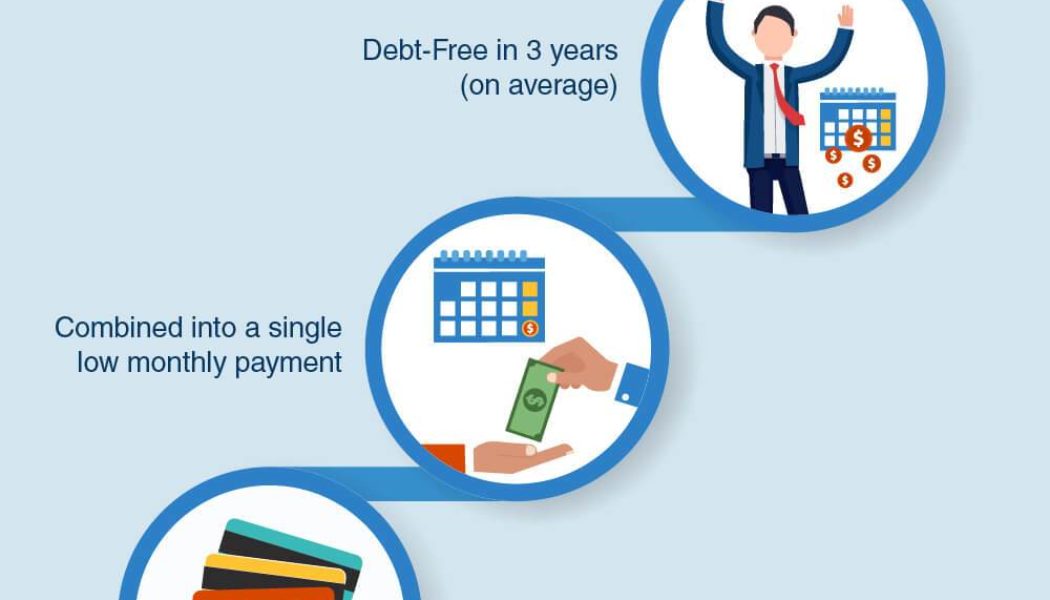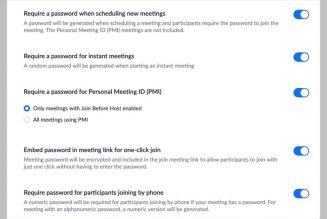/* custom css */
.tdi_4_37e.td-a-rec-img{ text-align: left; }.tdi_4_37e.td-a-rec-img img{ margin: 0 auto 0 0; }
So, you have heaps of debt and finally decided to get help. You’ve settled on debt consolidation, but you’re worried about how the financial strategy might affect your credit.
But can debt consolidation actually help your credit score? You may be pleasantly surprised.
Why Consolidate Debt?
/* custom css */
.tdi_3_d63.td-a-rec-img{ text-align: left; }.tdi_3_d63.td-a-rec-img img{ margin: 0 auto 0 0; }
Let’s start there. In short, consolidating your accounts can save you cash. For instance, if you have cards with an aggregate rate of, say, 24%, you can try to consolidate your balances into a new credit card or loan with a lower interest rate.
The financial solution also makes bill paying easier since you’ll have only a single monthly payment to concern yourself with — and a fixed one at that. This is as opposed to multiple payments of differing amounts due at varying times.
How to Consolidate Debt
While there are multiple ways to consolidate debt, what they all have in common is that they each combine debts into a single new loan. Let’s look at the various kinds of consolidation. The one you should choose depends on your situation and your credit. For more info, check out Freedom Debt Relief reviews – www.freedomfinancialnetwork.com.
- Personal loans. This only makes sense if you can get one with a better interest rate than what you’re paying now. If you qualify, you can zap those high-interest debts and possibly pay off your debt quicker.
- Balance transfer credit cards. Credit card issuers occasionally offer a card with zero % interest for a promotional period. If you’re eligible for one of these cards, you can shift your higher-interest debts onto it. Just be sure you can pay off the transferred balances before the interest rate shoots back up.
- Retirement account loans. You never really want to subtract from your retirement, but it’s an option if you need it. You can use the loan to consolidate and erase the debt. The rub is that you’ll need to repay the loan in a timely manner or face taxes and penalties.
- Home equity loan or line of credit. If you have a house, you can take out a loan against the equity and use it to pay off debt. These loans usually offer attractive rates. Why? Because the lender knows it can take said house should you forfeit.
How Will Consolidation Affect My Credit?
Consolidating your debt can help or hurt your credit scores. Here are some ways your score can go down:
- Through credit applications. Yes, your score is dinged when you apply for a personal loan or balance transfer card, but just by a few points.
- By opening a new account. This temporarily drops your score. Lenders view new credit as a risk, so your scores will decrease for a bit when taking out a new loan.
- Your average age of credit drops. Your credit scores increase as your accounts age and your credit report reflects on-time payments. However, adding a new account lowers your average account age and may temporarily depress your scores.
On the brighter side, here are some ways consolidating debt can cause your score to rise:
- Your credit utilization ratio drops. Having a lower ratio is a good thing because it shows that you aren’t using all of your available credit. Your utilization ratio may drop when you open your debt consolidation account because the loan raises your available credit.
- Your payment history improves. You’ll have to be diligent and patient, but if you make timely payment on your new loan, your credit score will rise over time. Just be certain to pay on time since your payment history is paramount when it comes to credit scoring.
So, can debt consolidation help your credit score? As you can see, the answer is yes!
The most important thing for you is to get going on a financial solution. Once you do, you’ll be back on track in no time.
By Staff Writer.
/* custom css */
.tdi_5_cce.td-a-rec-img{ text-align: left; }.tdi_5_cce.td-a-rec-img img{ margin: 0 auto 0 0; }










